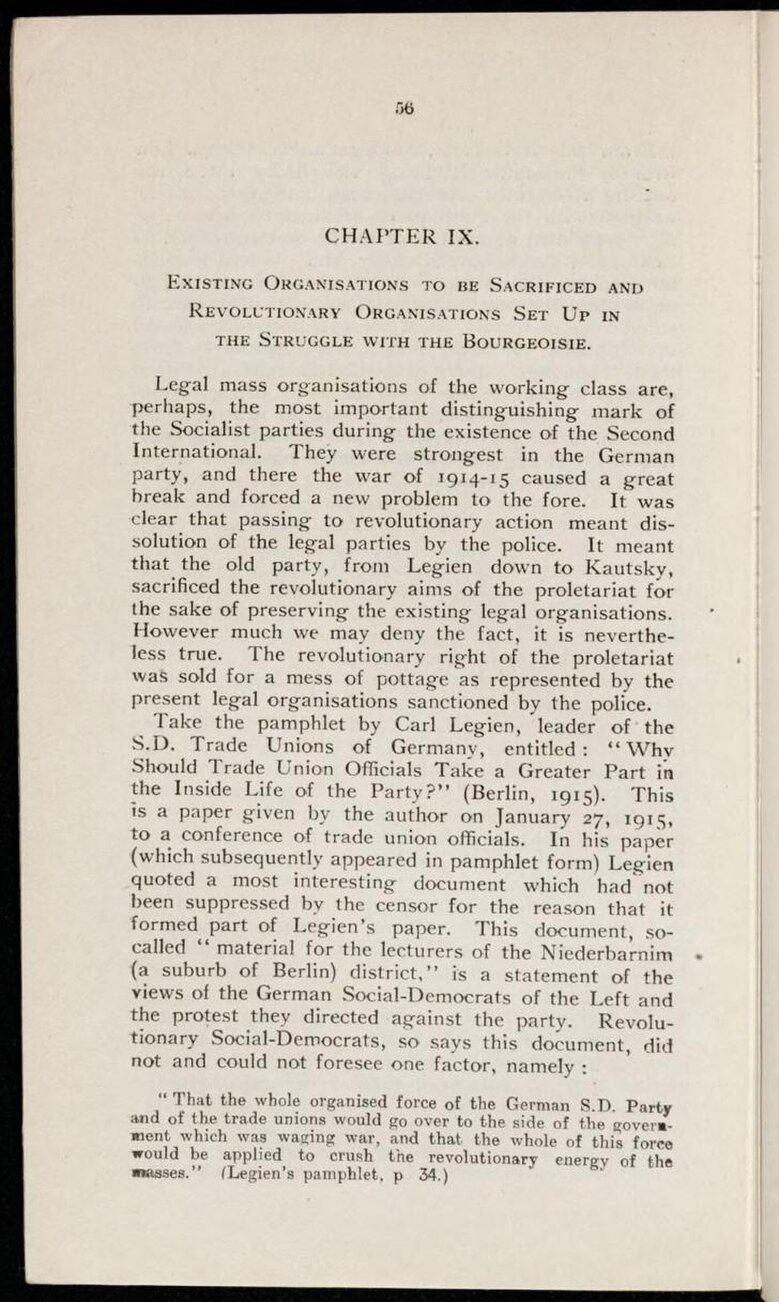56
CHAPTER IX.
Existing Organisations to be Sacrificed and
Revolutionary Organisations Set Up in
the Struggle with the Bourgeoisie.
Legal mass organisations of the working class are, perhaps, the most important distinguishing mark of the Socialist parties during the existence of the Second International. They were strongest in the German party, and there the war of 1914–15 caused a great break and forced a new problem to the fore. It was clear that passing to revolutionary action meant dissolution of the legal parties by the police. It meant that the old party, from Legien down to Kautsky, sacrificed the revolutionary aims of the proletariat for the sake of preserving the existing legal organisations. However much we may deny the fact, it is nevertheless true. The revolutionary right of the proletariat was sold for a mess of pottage as represented by the present legal organisations sanctioned by the police.
Take the pamphlet by Carl Legien, leader of the S.D. Trade Unions of Germany, entitled: "Why Should Trade Union Officials Take a Greater Part in the Inside Life of the Party?" (Berlin, 1915). This is a paper given by the author on January 27, 1915, to a conference of trade union officials. In his paper (which subsequently appeared in pamphlet form) Legien quoted a most interesting document which had not been suppressed by the censor for the reason that it formed part of Legien's paper. This document, so-called "material for the lecturers of the Niederbarnim (a suburb of Berlin) district," is a statement of the views of the German Social-Democrats of the Left and the protest they directed against the party. Revolutionary Social-Democrats, so says this document, did not and could not foresee one factor, namely:
"That the whole organised force of the German S.D. Party and of the trade unions would go over to the side of the government which was waging war, and that the whole of this force would be applied to crush the revolutionary energy of the masses." (Legien's pamphlet, p 34.)
